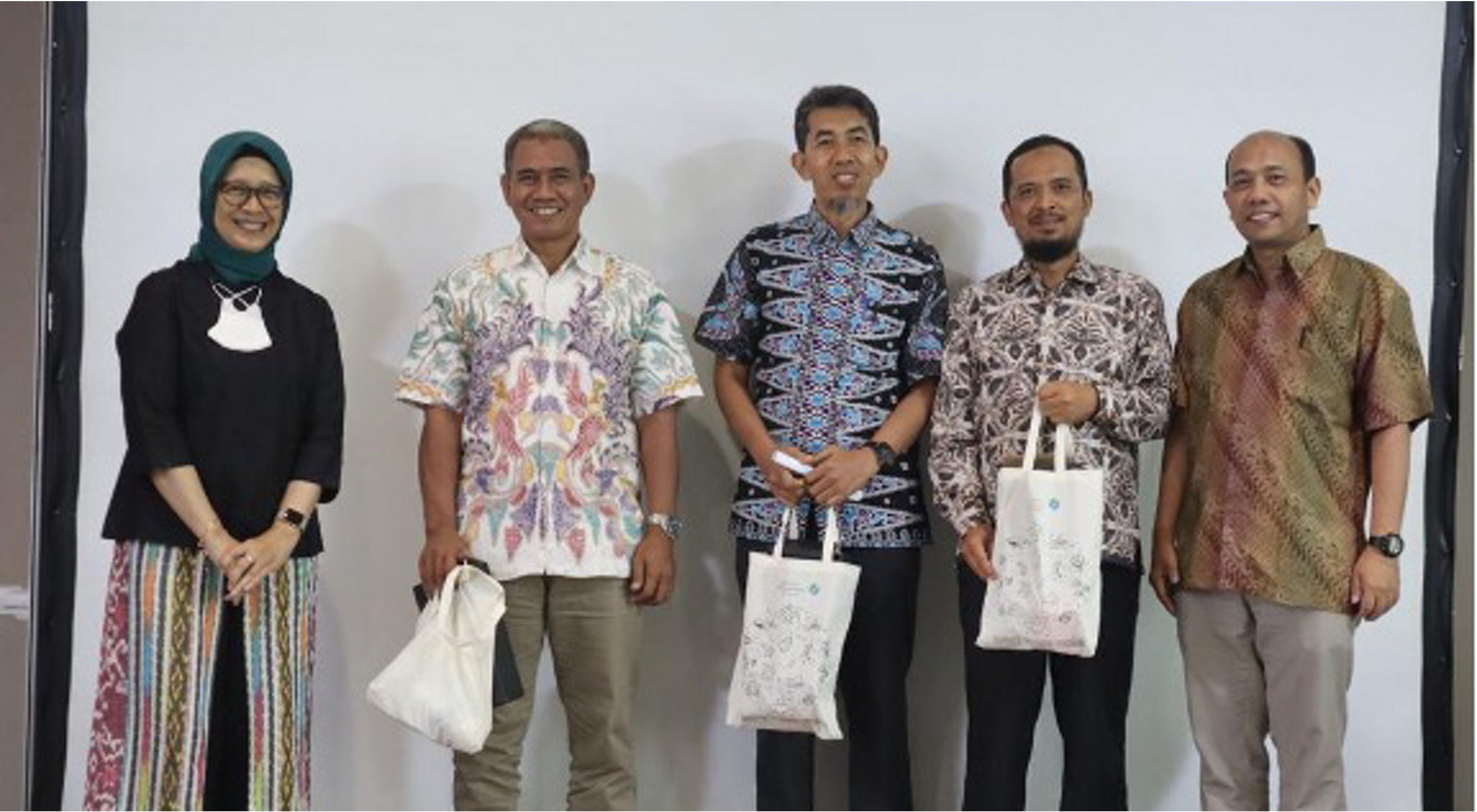Media Contacts
-
Maria Adityasari
Communication Specialist YKAN
Yayasan Konservasi Alam Nusantara
Email: maria.adityasari@ykan.or.id
At least, there are 1,666 plant species consumed by orangutans. The study's results proved that several orangutan food plants are medicinal plants that humans often consume. Having a genetic similarity rate of 97% to humans, a species that now has a critical status, or one step before being declared extinct (IUCN, 2016), orangutans have an essential role in supporting human welfare through the development of the pharmaceutical and health industries in Indonesia.
Yayasan Konservasi Alam Nusantara (YKAN), in collaboration with Mulawarman University, conducted a study to determine the nutritional and medicinal potential of various types of orangutan food plants. This research was born in the Wehea-Kelay Landscape, East Kalimantan, from November 2021 to May 2023. The results of this study were presented in the Thought Leadership Forum discussion with the theme "Potensi Nutrisi dan Medisinal dari Jenis-jenis Tumbuhan Pakan Orangutan di Bentang Alam Wehea-Kelay," in Jakarta on Tuesday, 20 June 2023.

The TLF event, which YKAN held for the 28th time, presented a Lecturer from the Faculty of Forestry, Mulawarman University, Prof. Dr. Irawan Wijaya Kusuma, Director of the Samarinda College of Health Sciences (STIKSAM) Apt. Soepomo, S. Si., M.Sc., Director of Research and Development of Dexa Group Prof. Dr. Raymond R. Tjandrawinata, and YKAN Terrestrial Program Partnership Manager Edy Sudiyono as presenters for the discussion.
The Wehea-Kelay Landscape is an essential habitat for flora and fauna in Kalimantan. This area is a habitat for around 1,200 Bornean orangutans (Pongo pygmaeus morio) and more than 1,500 species of flora and fauna. Since 2003, YKAN has collaborated with local communities and the government to build collaborative management in the Wehea Protection Forest area.
"One of the important efforts to preserve nature is to reveal it's potential in-depth and use it sustainably. Protecting critically endangered animals such as orangutans does not only protect their populations. With the genetic similarity between orangutans and humans, many things can be learned and benefit human life. Plants consumed by orangutans have the potential to become a source of germplasm for study and development for medicinal plants and human food. This confirms the important role of orangutans in nature, along with the existence of their habitat to be preserved," explained YKAN Terrestrial Program Partnership Manager Edy Sudiyono.
Study of orangutan feeding in the Wehea-Kelay Landscape
A study conducted on 59 species of orangutan food plants found in the Wehea-Kelay Landscape showed that more than 50 percent of these plant species were also used traditionally by humans. "This type of plant is used as an anti-injury, anti-infection and inflammation, for supplements, and other uses," explained Prof. Dr. Irawan Wijaya Kusuma, a researcher from the Faculty of Forestry Mulawarman University, who presented the results of a study of orangutan food plants for nutritional, medicinal and cosmetic products.


One of them is Macaranga conifera, which is generally used as a traditional medicine for fever and cough, anti-inflammatory, diarrhea medicine, and canker sores. This plant has even been cultivated in China as a raw material for health drinks. The study's results also revealed that this plant has a high antioxidant content, so it can be used to help treat degenerative diseases such as cancer.
According to the Director of Samarinda College of Health Sciences (STIKSAM) apt. Soepomo, S. Si., M.Sc., the results of this study are in line with the government's target through the RI Ministry of Health's Strategic Plan 2020-2024 that the development of domestic medicinal raw materials is one of the focuses in the action plan to accelerate the growth of the pharmaceutical and medical device industry. Results globally also show a trend of returning to nature which elevates the potential of herbal products as alternative therapies for health and beauty.
The Director of Research and Development of Dexa Group, Prof. Dr. Raymond R. Tjandrawinata, agreed upon the same thing, who said that Indonesia's biological wealth is capital for developing original Indonesian modern medicines or OMAI and encourages national drug independence. OMAI is also now starting to be recognized in the global market.
Regarding developing products from orangutan food plants in Wehea-Kelay, Edy emphasized that the potential plants studied were focused on plant species that are easy to grow, not protected or endangered, and have nutritional and medicinal potential. Thus, if it is to be cultivated on a large scale, it will not disturb the forest ecosystem itself.

"Joint discussions across sectors like this are urgently needed to build opportunities for further development cooperation to support the creation of a healthy Indonesian society by utilizing biological natural resources originating from forests in East Kalimantan sustainably," added Ratih Loekito, Director of Development and Marketing of YKAN.
Different roles from various sources in collaborative efforts are crucial to conservation in Indonesia. Collaboration is needed to develop other orangutan food plant products, which is also a step towards protecting the Wehea-Kelay ecosystem while protecting the population and habitat of the Bornean orangutan, Pongo pygmaeus morio.
Yayasan Konservasi Alam Nusantara (YKAN) is a scientific-based non-profit organization that has been present in Indonesia since 2014. With the mission of protecting lands and waters as life support systems, we provide innovative solutions to realize the harmony of nature and humans through effective natural resource management, prioritizing a non-confrontational approach, and building a network of partnerships with all stakeholders for a sustainable Indonesia. For more information, visit ykan.or.id.


